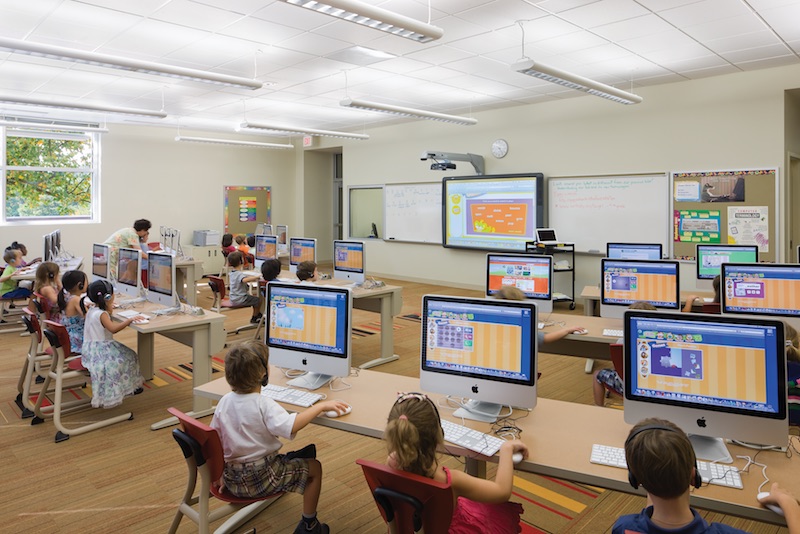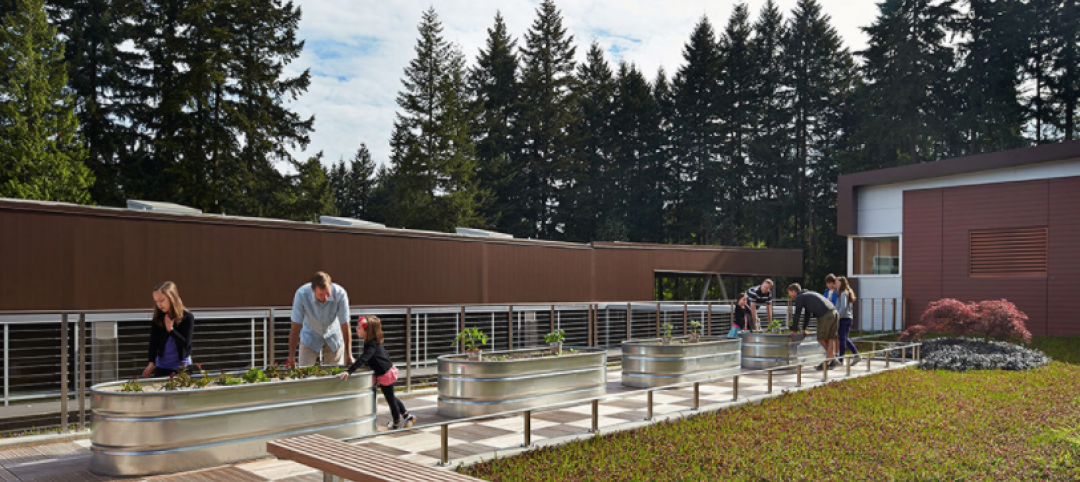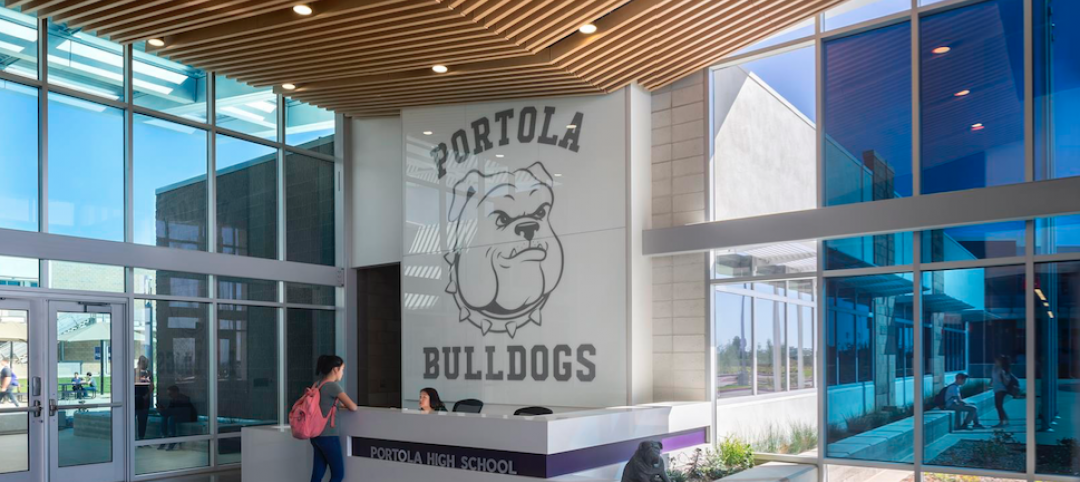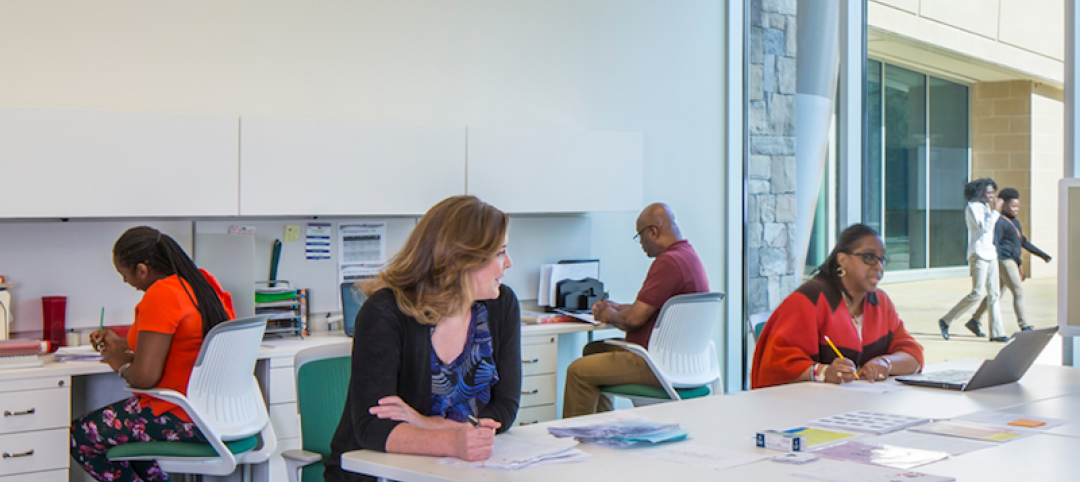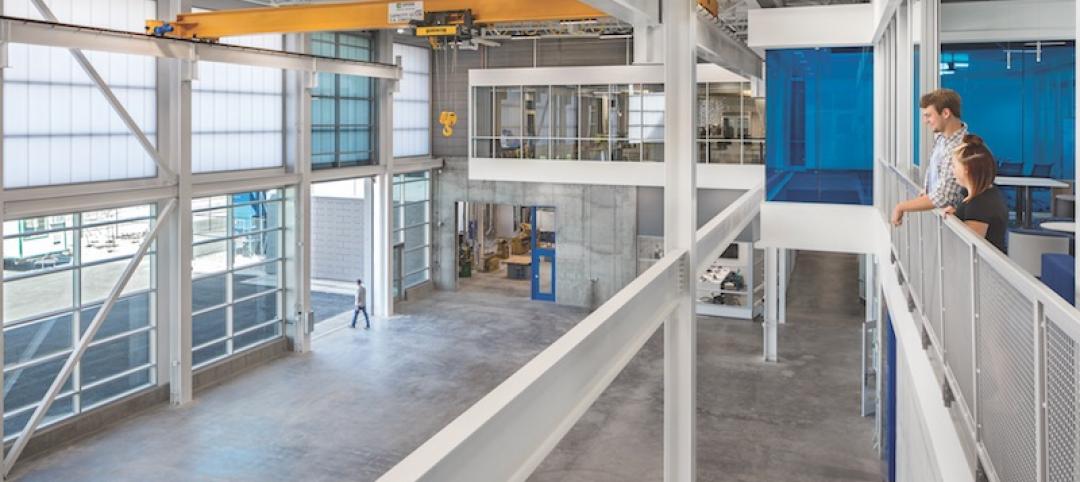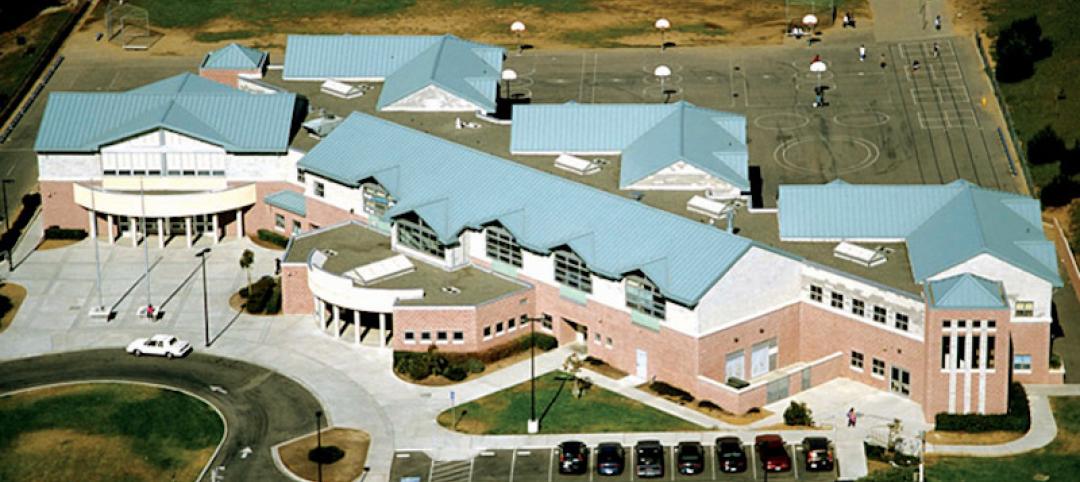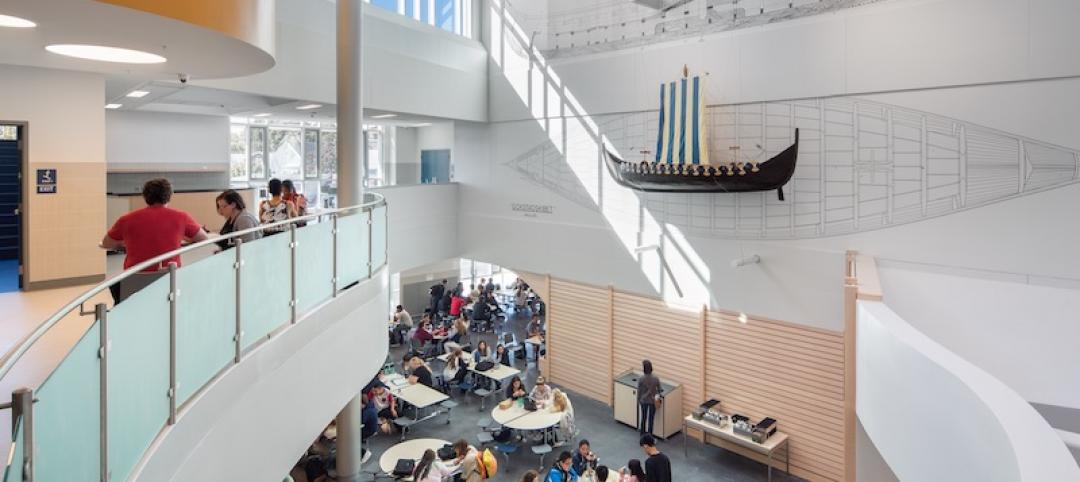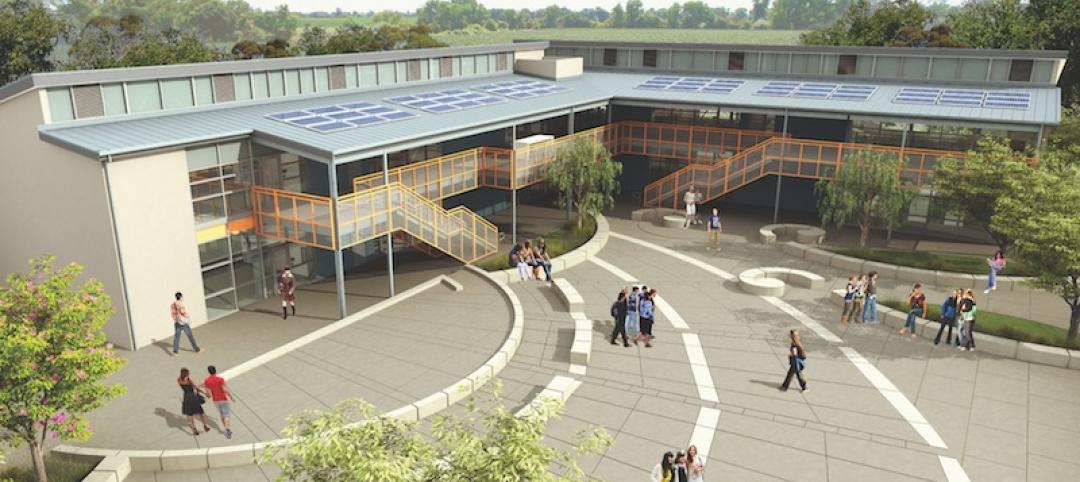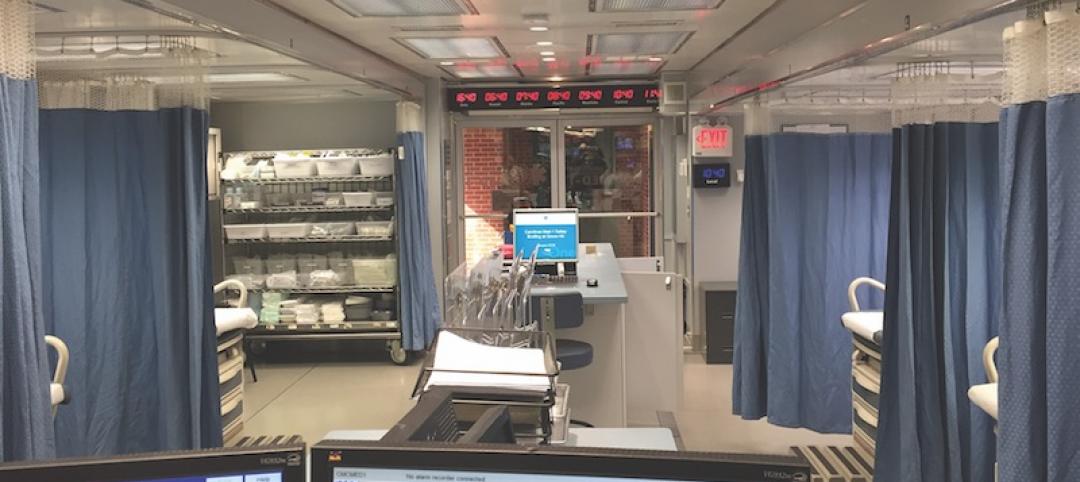As school districts explore new ways to reach the broadest number of students, myriad teaching methods—some with one foot in psychology and the other in commerce— are seeping into the educational bloodstream. As a result, AEC teams are being asked to design and build schools with enough flexibility to adapt to changing pedagogies.
Architect Richard Berliner singles out a K-8 charter school in Lancaster, Calif., that “doesn’t have a single traditional classroom.” It follows the teaching blueprint of ILead—for International Leadership and Entrepreneurial Development, inspired by Stephen Covey’s book and program “The Leader in Me.” At USC Hybrid High School—a personalized college-prep program developed by the charter management organization Ednovate and affiliated with the University of Southern California—teachers weave yearlong themes (such as “Know Yourself ” or “Know Your World”) into their students’ coursework.
Last September, 10 campuses nationwide (from among 10,000 applicants) received $10 million each to create “a high school of the future” through XQ: The Super School Project, an organization of educators and engineers launched last year by Laurene Power Jobs, the widow of Apple cofounder Steve Jobs.
Like other XQs, Vista High School, in the North San Diego area, has a year to implement its plan and five years to incorporate XQ’s program. The details of what this will mean for the physical school are still being worked out. Right now, some Vista classes are conducted in modular trailers. But the campus has 50 acres, “so we have lots of room to maneuver,” says Ashley Johnson, Architectural Designer at Berliner Architects, which is designing Vista’s XQ campus. The firm envisions a high school with dedicated classrooms interspersed with rings of flexible and common spaces.
The high school will retain its Personalized Learning Academy, a school within a school that replaces conventional classes with individualized coursework and online curricula. The school has contracted with software developers to design an app that will chart students’ progress in mastering skills and completing projects.
Related Stories
K-12 Schools | Apr 7, 2017
Is an alternative project delivery method right for your K-12 school district?
With California’s increasingly busy—and costly—construction market, it’s becoming more difficult to predict costs with a typical design-bid-build delivery method.
K-12 Schools | Mar 9, 2017
The future of education facilities: Creating spaces where learning happens everywhere
The art of designing schools lies not in just understanding what makes a functional classroom, but in how successful we are in creating a wide array of educational options for teachers and students within the school environment.
K-12 Schools | Mar 9, 2017
School branding: The impact on identity and engagement
What is school branding and why is it important? HMC Architects’ James Krueger and Barbara Perez weigh in on the topic.
K-12 Schools | Feb 22, 2017
Through the principal's eyes: A look at K-12 architecture
Anderson-Livsey is a K-5 school located about 30 minutes East of Atlanta in Gwinnett County and has an enrollment of 785 students.
K-12 Schools | Feb 8, 2017
'Fabrication Hall' introduces Wyoming high school students to career paths
The hall offers bountiful natural light with enough space to build large-scale projects.
Architects | Jan 19, 2017
Harley Ellis Devereaux merges with Deems Lewis McKinley
The combination is expected to bolster HED’s presence in northern California and the K-12 sector.
K-12 Schools | Dec 14, 2016
Expanding possibilities for America's K-12 schools
Bigger buildings, more outdoor space, and greater involvement from the private sector are among the trends marking the new generation of schools.
School Construction | Oct 23, 2016
As construction rebounds, education sector spending flattens
Post-recession slump suggests a settling in at a “normal” level similar to the mid aughts.
Great Solutions | Aug 23, 2016
Novel construction approach speeds K-12 school projects
The Folia system uses pre-engineered components to deliver school buildings at 20% less cost.
Great Solutions | Aug 23, 2016
11 great solutions for the commercial construction market
A roll-up emergency department, next-gen telemedicine center, and biophilic cooling pods are among the AEC industry’s clever ideas and novel innovations for 2016.


